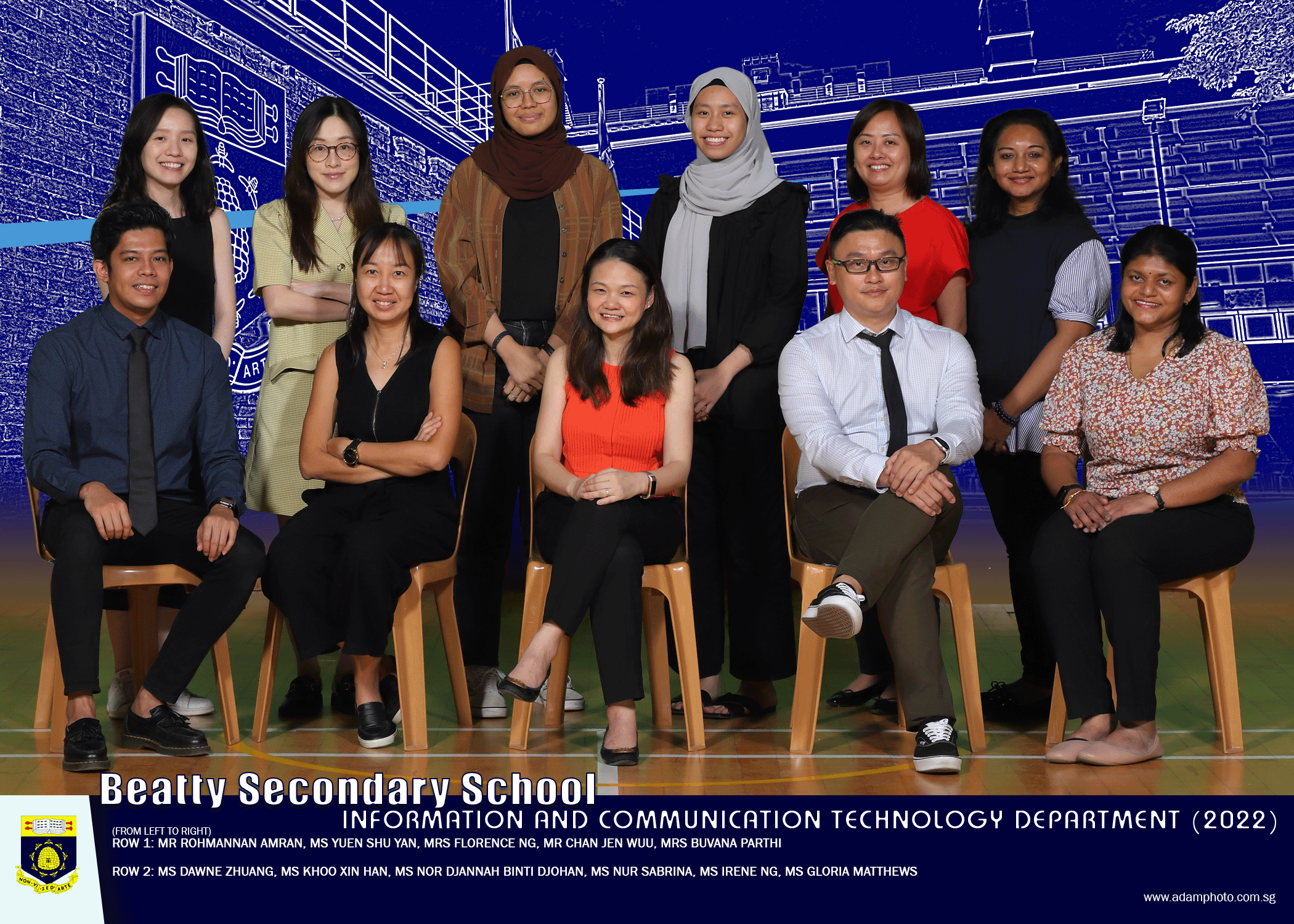Information and Communications Technology
ICT Department

The Information and Communications Technology (ICT) Department seeks to
- enhance the teaching and learning environment through the use of technology;
- equip and empower teachers to use ICT tools productively for quality teaching and learning in support of the total curriculum;
- enable Beattyians to be competent in the use of ICT and be future-ready, while being a responsible digital learner; and
- ensure reliable ICT infrastructure in support of the school curriculum.
Programmes
Staff Development and Training
The ICT Department strives to nurture a culture of innovation where teachers engage in experimentation in order to develop their digital skills. Opportunities are given for professional discourse and reflective practice among staff as they continually hone their craft. We aim to help our teachers harness technology for curriculum, pedagogy and assessment to develop our students into future-ready learners and to support professional learning with technology to develop teachers to become designers and facilitators of technology-mediated learning experiences.
The Ministry of Education’s ICT Master Plan 4 emphasises the productive use of ICT for quality learning in support of the total curriculum – to deepen subject mastery and develop the 21st Century Competencies. Students are equipped with a personal learning device under the Personalised Digital Learning Programme (PDLP) that aims to enhance teaching and learning, support self-directed and collaborative learning and develop their digital literacies. Teachers are introduced to relevant education technology tools and e-pedagogy throughout the year. This enables them to develop a repertoire of teaching activities, methods, resources that will tailor to the needs to the students in their classes and improve their administrative efficiency.
Student Training
Aimed at developing students with critical 21st Century Competencies and to be future- ready, ICT is appropriately infused into the design and development of curricula in school as teachers seek to harness technology for teaching and learning in their classrooms. Besides infusing ICT in our curriculum, ICT workshops are also provided for both our lower and upper secondary students.
As part of the school’s Applied Learning Programme (ALP), ICT training is integrated with Project Work lessons for the lower secondary classes. Through these sessions, students will learn new media literacy skills such as harnessing open tools to document their progress and collaborate with their groupmates. Students are also taught key skills such as maximising their searches on the Google search engine and retrieving useful and reliable online information. They are also educated on the importance of doing proper citations and avoiding plagiarism, as well as how they can capitalise on technology to manage their schedules. Students are also taught how to maximise the use of their iPads for greater productivity.
Upper secondary students are taught how to use functions in the Microsoft Excel software in order to manage and process large data sets. They are then given scenarios to demonstrate their skills in exploring the various functions of the spreadsheet.
Cyber Wellness
To ensure that our students are discerning and responsible ICT users, digital learning and cyber wellness education are incorporated in our cyber wellness programmes. The myriad activities range from cyber wellness talks and LiVE lessons to the advocacy programme helmed by our cyber wellness ambassadors. These programmes expose and educate students on matters pertaining to cyber wellness, such as managing their online identity and being discerning when managing social media messages.

